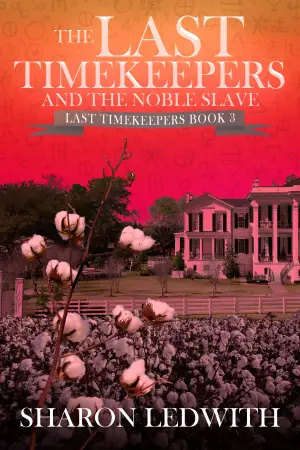Lost in Time: A Captivating Journey Through Time and Emotion
When I first encountered Lost in Time by A.G. Riddle, I was immediately drawn in by the riveting premise—a father and daughter entangled in a murder mystery that stretches across time. As someone who treasures complex narratives and character-driven stories, I knew this would be a wild ride, and I wasn’t disappointed. From the first page, Riddle’s knack for storytelling had me hooked, and I found myself racing through the chapters, eager to unravel the mysteries alongside his clever characters.
At the heart of the novel is Dr. Sam Anderson, a devoted father who finds himself wrongfully accused of murder just as he’s trying to cope with the grief of losing his wife. The stakes rise dramatically when he ends up confessing to protect his daughter, Adeline, who, driven by tenacity and love, embarks on a journey to prove her father’s innocence. This dynamic of familial love intensifies the emotional weight of the story, and Riddle masterfully weaves this theme into the complex tapestry of time travel and moral dilemmas.
Riddle’s writing style is both engaging and accessible, perfectly balancing high-concept science fiction with a gripping narrative. He offers an intriguing take on time travel—rather than the familiar hopping back and forth, characters face irreversible choices and consequences. The notion that the worst criminals are sent 200 million years into the past to live among dinosaurs adds a unique twist that keeps readers on their toes. As one character brilliantly remarked, “Control the past. Save the future.” It’s a statement that reverberates through the narrative and gets you pondering the ethical implications of such technology.
The pacing of the book deserves special mention; it’s relentless yet manages to allow for character development. I found myself particularly captivated during Adeline’s quest, as she navigated a world where everyone seemed to harbor secrets. Her determination and strength beautifully contrasted with her father’s desperate situation, and I couldn’t help but root for her. Riddle’s ability to inject moments of tenderness amid the chaos made the stakes feel all the more real.
Adeline’s resilience, highlighted by her refusal to accept defeat, resonated deeply. Quotations like “impossible tasks are her specialty” not only sum up her character but also serve as an inspiring mantra for readers. It speaks to the human spirit’s capacity to face insurmountable odds, a theme that had me reflecting long after I finished the last page.
Lost in Time presents a thrilling rollercoaster ride through a richly imagined world of scientific intrigue, emotional depth, and countless unexpected twists. It’s a perfect read for fans of sci-fi, thrillers, or mysteries, but even those who typically shy away from speculative fiction will find something to love in its heartwarming core. By the end, I felt a sense of wonder—of possibilities, of choices, and the importance of family. Riddle has crafted not just a tale of time travel but a profound exploration of love, loss, and resilience.
If you’re looking for a thought-provoking adventure that propels you through time while tugging on your heartstrings, pick up Lost in Time. I promise it will keep you guessing and leave you reflecting on the fabric of time and the connections that bind us all.






